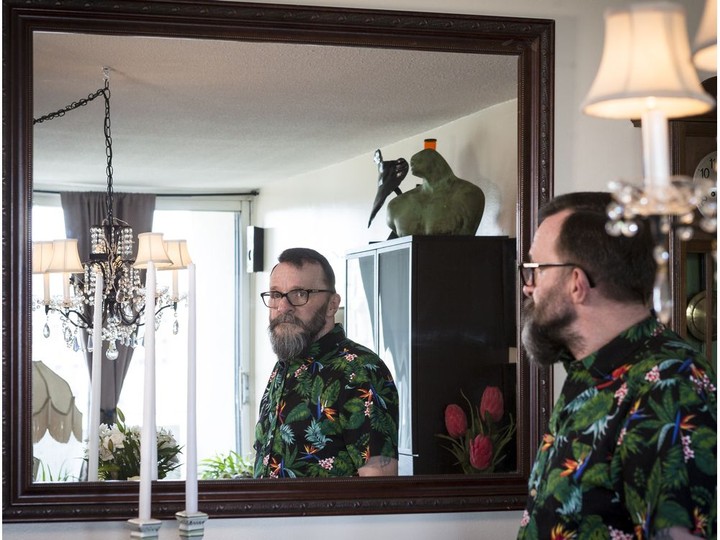terror and grace: kevin hatt's 34-year journey with hiv
kevin hatt was working in a montreal gay bar when he he...
we apologize, but this video has failed to load.
try refreshing your browser, or
tap here to see other videos from our team.
tap here to see other videos from our team.
kevin hatt was working in a montreal gay bar when he heard about a popular patron who had died suddenly of a mysterious illness.it was 1982, and the young man’s death fit the description of similar disease outbreaks in the gay villages of san francisco and new york. as hatt would soon learn, the aids epidemic had arrived in canada.“the feeling was nothing short of terror — because of the unknown,” he says.hatt would not escape its devastation. he was diagnosed with hiv, the virus that can cause aids, on march 24, 1984.he’s now lived with the disease longer than all but a small number of canadians.“at that time, when you were diagnosed with hiv, the general prognosis was about six months,” he says. “why i’m still here today, i don’t know. i guess i’m too stubborn to die or something.”antiretroviral drugs, introduced in 1995, have allowed hatt and thousands of other canadians with hiv to live into their 60s and 70s. but studies show they tend to suffer age-related diseases earlier in their lives, including cardiovascular disease, osteoporosis and dementia.
related
hatt says his health, while variable, remains “fairly stable.”“i keep living my life and hoping for the best.”hatt is the former chair of the aids committee of ottawa, and has been the recipient of a lifetime achievement award for his contributions to this city’s gay community.at 61, he says he doesn’t have a bucket list.“my bucket is already overflowing,” he says. “i’m very content because i’ve done everything over the years that i wanted to do. that’s one of the benefits of living with a chronic illness: you don’t wait.”hatt grew up in chester, n.s., where he was adopted at the age of five by fundamentalist christian parents. the united baptist church became the focus of his young life, and when he recognized that he was sexually attracted to other boys, hatt prayed for deliverance.“i didn’t understand it,” he says.in his late teens, he enrolled in bible college, intent on a career as a missionary and history teacher, but hatt eventually suffered a crisis of faith. when he dropped out of college and announced he was gay, his world collapsed. he was turned out of the house by his family and set adrift by the church.“my mother would call at 5 a.m., screaming that she had just woken from a nightmare where i was burning in hell because i was a homosexual,” he recalls.hatt moved to montreal, where he worked as a bartender before launching a career as a funeral director in toronto. he became heavily involved in hiv activism, and worked with a home hospice care team, organized by the metropolitan community church, to assist people with aids.“i wanted to contribute and make a difference,” he says.advertisement

hatt moved to ottawa in 1996 and continued his work as an activist and advocate, serving as director of the aids committee of ottawa, organizing the aids walk and working to raise money for capital pride.living with hiv for so long has been both a physical and mental challenge. “the thing about this disease,” he says, “is that you’re well, and then, all of a sudden, you’re sick. then you get well again, and then you get sick again. that makes it very hard to hold down a job.”hatt had to give up working in 2000, when he began to develop progressive multifocal leukoencephalopathy (pml), sometimes known as aids-related dementia. the disease has robbed him of the ability to play the piano, to write and to concentrate for extended periods.a combination drug therapy has stopped the progress of his pml. meanwhile, hatt’s hiv remains undetectable in his bloodstream, which means he can’t transmit the disease.and for all its hardship, hiv has also brought him grace“at first, you’re kind of terrified: every cold you get, every pimple you get, everything is a cause for worry. but after this many years, i’m kind of used to it and, if anything, it’s caused me to cherish every day.“i wake up every morning glad that i’ve woken up. and so it makes life very valuable. i value friendship and i say what should be said. i don’t wait until tomorrow.”aduffy@postmedia.com
 3 minute read
3 minute read
